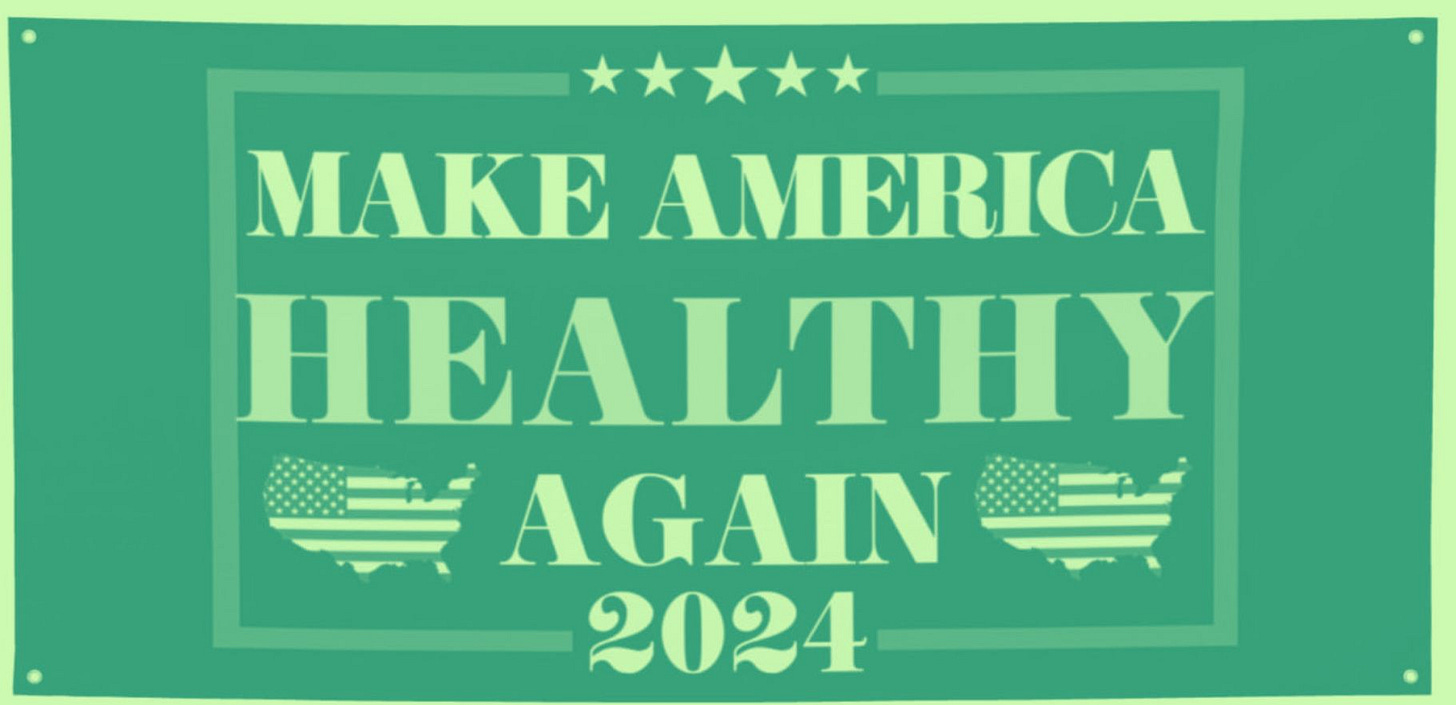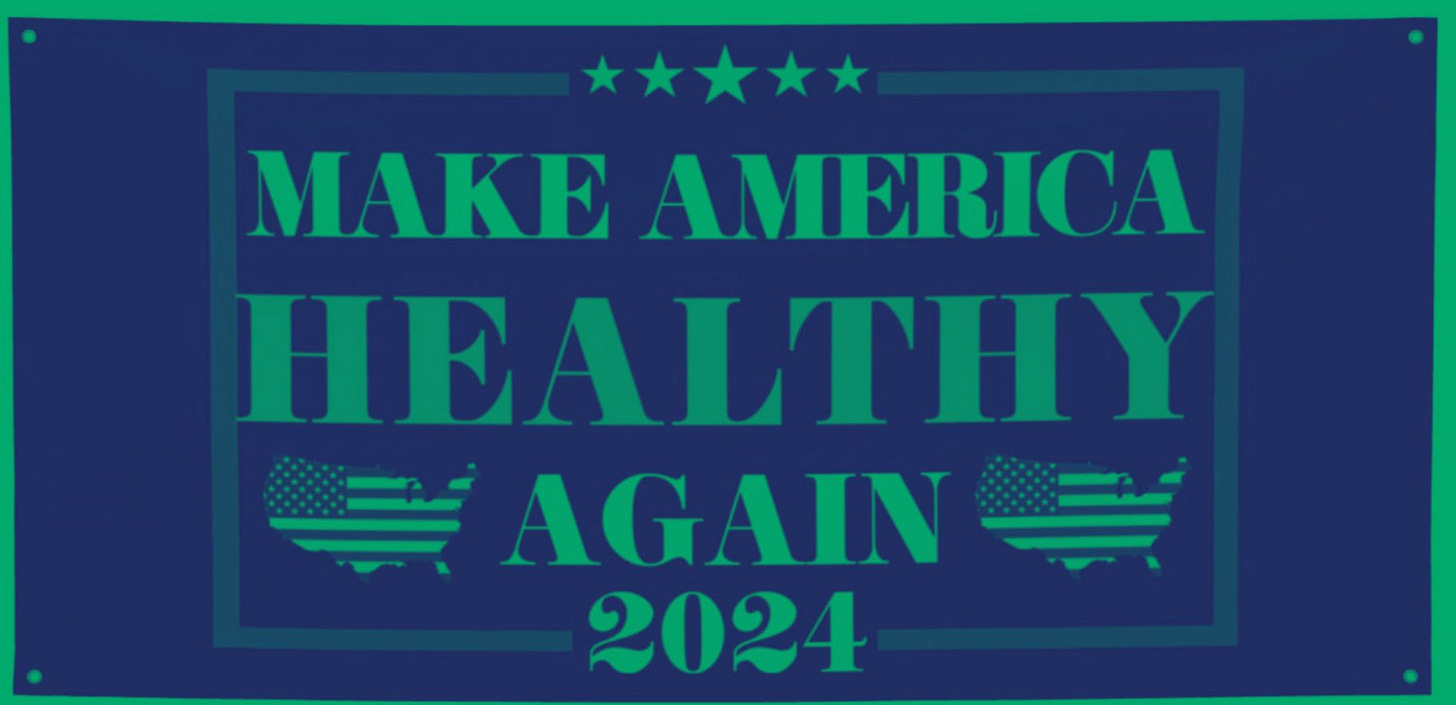What I learned from being raised on raw milk
On growing up MAHA and what it taught me about this moment
The day I finally received all my vaccinations, I was 25. I had been accepted to a master’s program based in Boston, where Gov. Mitt Romney had recently passed what would be known as RomneyCare, a comprehensive overhaul of healthcare in Massachusetts, which among other things required all college students to have proof of vaccinations.
For many people, this is pretty easy. For me, it was a four-month process of phone calls to doctors across the country, angry texts to my mom, and finally crying in my doctor’s office telling her I’d never get my master’s. And having her sigh and say, “Okay, let’s just do them now.”
I was raised in a world of faith and fear. My parents homeschooled me and my siblings in the ‘90s, when the laws were still evolving and the legalities were blurry. My mom bought natural peanut butter from the co-op, ground wheat for her homemade bread, and sourced milk straight from the cow. She took us to a homeopathic doctor, who gave us oils for my constant ear infections. We used arnica for bruises and pains.
Now, when I explain this to people, I say my mom was “trad wife” before trad wife was cool, and it has never really been cool.
We were part of a new movement that was born out of the rise of Ronald Reagan and the new right. I read mailings from the Home School Legal Defense Association that told stories of children being ripped from their families solely because they were homeschooled. When the ATF surrounded the compound in Waco, I was 10, and we lived just an hour away. I listened to the adults at church talk about how we could be next, that Janet Reno was coming for people who lived differently from everyone else. The people who lived by faith. Who were, as Christ called us to be, in the world but not of it.
When Robert F. Kennedy Jr. was appointed as the head of Health and Human Services, those ideas that I grew up with — the ones that rejected vaccines and embraced raw milk — became officially mainstream.
Critics and opponents of these ideas often focus on debunking the arguments of the “Make America Healthy Again” movement. As if journalists (who aren’t trusted) citing doctors (who are only marginally trusted) could publish a piece in the The New York Times (trusted by no one) that would change anyone’s mind.
I read these pieces and I sit in conversations where I hear people say, “Can you believe they don’t believe in science?!” And when I am exhausted, I just listen and nod. But other times, when I have had a good night's sleep or two wines, I will say, “I can believe it; it actually makes sense to me.”
While vaccines are lifesaving and a big reason most children live to adulthood, vaccines and medicine have a complex history that involves racism, misogyny, and institutional failures. We have good reasons to mistrust government health programs, which for centuries have forcibly sterilized Black, brown, disabled, and incarcerated people, or used their bodies for medical experiments without their consent.
I think of the ways my mother was failed by doctors in hospitals as she gave birth to her children. My sister was given the wrong blood type in emergency surgery, even as her life was being saved. I have many friends who fight for answers for their chronic pain. Friends who are medical providers who work against cold institutions to get affirming care for their patients.
Even before the rise of RFK Jr., people have been fighting for their pain to be believed by doctors. People have been fighting to be seen as humans in a system that regularly dehumanizes and degrades fat bodies, bodies of color, incarcerated bodies, and disabled bodies.
And going to the doctor or accessing this “science” is expensive, often inaccessible, and a logistical nightmare.
There are difficult and important reckonings happening in America right now. None of which can just be papered over with the dismissive catchphrase: “Believe science.”
This new world is enraging and ridiculous, but that doesn’t mean the old world was good. It too was built on lies and disavowals. It too failed us. The two movements, MAHA and “Believe science!” aren’t diametrically opposed, but in search of the same thing — health, happiness, and individual autonomy.
Not that debunking lies about medicine isn’t a worthy cause. But dismissing MAHA as anti-intellectual is to dismiss the very real ways in which we have been, and are, and will continue to be failed by science and medicine. To adapt what Naomi Klein wrote in Doppelganger about conspiracy theorists — MAHA moms and RFK “get the facts wrong but often get the feelings right — the feeling of living in a world with Shadow Lands, the feeling that every human misery is someone else’s profit, the feeling of being exhausted by predation and extraction, the feeling that important truths are being hidden.”
After I got fully vaccinated at 25, I made a quiet vow to always listen to doctors and do what they say. I’d be the model patient. I’d believe science. And three years later, when I gave birth to my daughter, I too was failed by the institution tasked with helping me.
This new world is enraging and ridiculous, but that doesn’t mean the old world was good. It too was built on lies and disavowals. It too failed us. The two movements, MAHA and “Believe science!” aren’t diametrically opposed, but in search of the same thing — health, happiness, and individual autonomy.
A friend told me last year that I should write about how I was raised MAHA before it was cool. And I joked that if one of my siblings had gotten sick from raw milk, I’d have a viral article on my hands. “I Grew Up on Raw Milk and It Killed My Brother Jim” would be breathlessly shared on social media. I’d get a lot of new followers. My newsletter would be a success. Alas, I don’t have a brother named Jim. No one died because of how we were raised. We all need a lot of therapy, but honestly, so do people raised as atheists in New Jersey.
Because even if we don’t have faith anymore, Americans are all still living in a world of fear. Stories that trade on these fears are the ones that are shared, because they validate the fears we feel about the world around us.







I think you articulate something really important here, something that needs to be taken into consideration when trying to figure out how to bridge the gap between virulent mistrust of science and the very real and tangible benefits science has provided the human race.
I have multiple chronic illnesses and have been on a medical odyssey for the last twenty years. I have had both good and bad experiences with doctors, and for sure having a bad experience with a medical professional when you're already in a highly vulnerable state does serious and sometimes irreversible damage. I have had to do a lot of doctor shopping to find professionals I feel comfortable with because I have had to fight at times to get doctors to take me seriously and provide me with the care I need. And as frustrating as that has been for me, I am 100% aware of how privileged I am to live in an area that offers me multiple options and to have enough insurance coverage and financial security to enable me to do that doctor shopping.
If I didn't have that insurance coverage and financial security, I might very well not be here to type this because the specialists I need to see, the procedures I need to have regularly, and the medications I need to take to manage my conditions are all hideously expensive. Without access to modern medicine, I would for sure be dead right now. I think this tension is the problem with healthcare in general. I am both grateful for it and sometimes deeply mistrustful of it. It is so expensive, so hard to obtain, and so dehumanizing that I also fully understand why some people reject it altogether.
The problem is that the MAHA movements isn't proposing any real changes and some of what they're proposing will do active harm. Supplements and dietary changes are not going to fix my issues the way a lot of MAHA proponents claim. However, I fully understand the deep-seated need people feel to find healthcare that feels empowering and responsive to individual needs. We would all benefit if we could figure out how to harness that energy to create a system that serves the needs of human beings instead of venture capitalists and pharmaceutical corporations.
Yes, science has failings, but the foundation of scientific thinking is to retest facts and assumptions. Therein lies the profound and overarching difference between MAHA and “believe science .” The “believe science” camp, in which I stand proudly, is and always has been (in this country) open to the possibility that science gets things wrong. MAHA, founded on assertions without evidence, requires perpetual, unquestioning and blind obedience to the cult leader of the moment. And here we are gutting the CDC and NIH including world-leading researchers in Alzheimer’s and cancer treatment, not to mention vaccines. The price will be rivers of blood and lost years of life.